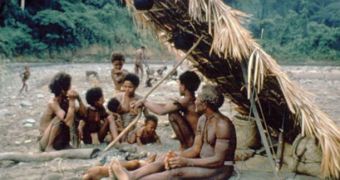According to the results of a new study, it would appear that in-laws (parents of one's spouse) played a critically important role in our development as a species, eventually allowing us to move from the savannas to big cities.
Though generally picked on by social norms, in-laws may have helped trigger a social revolution in ancient times, whose consequences still affect our society today, experts behind the new work say.
These conclusions were derived from the analysis of genealogical and marital data collected from modern, hunter-gatherer societies. The researchers were interested in analyzing the social networks that formed among neighboring groups as a result.
They determined that large networks of in-laws exist among such groups. These are formed when a man from one group marries a woman from another. The people who become in-laws as a result form a large set of connections, that has far-reaching implications on the groups.
These networks foster cooperation and understanding, and also facilitate cultural learning. This makes it easier for members of different groups to move past the things dividing them, and focus on those things that they have in common.
The research was conducted by a team of experts led by anthropologist Kim Hill, who is based at the Arizona State University (ASU) in Tempe. The experts propose that this type of social arrangement is what separated our earliest ancestors from primates.
Details of the investigation were published in the March 11 issue of the top journal Science.
“Alliances between foraging groups are facilitated because unrelated males all associate with the same female, who may be their daughter, sister, wife, mother or daughter-in-law,” Hill explains, quoted by SpaceRef.
“By friendly association with her, males begin to associate with each other,” the expert adds, quoted by Science News. The interesting thing about this is that in-laws essentially encouraged cooperative behavior among individuals that were not genetically related.
This type of cooperation is very rare in other species, and instances when it happens are exceptions, rather than the norm. It would also appear that humans have been doing this for 2 million years or so.
“Differences in social structures, not necessarily cognitive advances, allowed our species to cross the barrier to cumulative cultural evolution,” adds University of British Columbia in Vancouver anthropologist Joseph Henrich.

 14 DAY TRIAL //
14 DAY TRIAL //